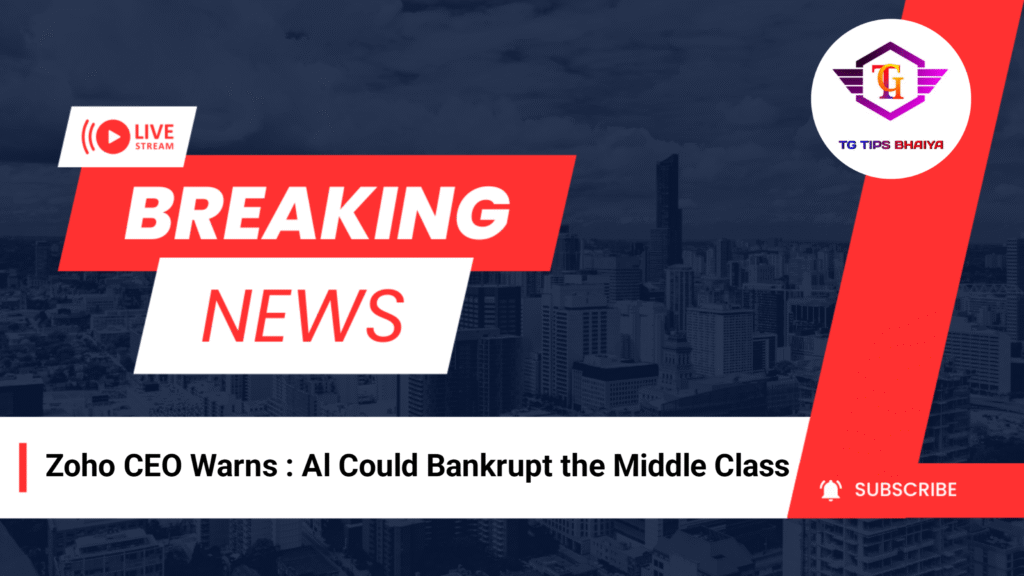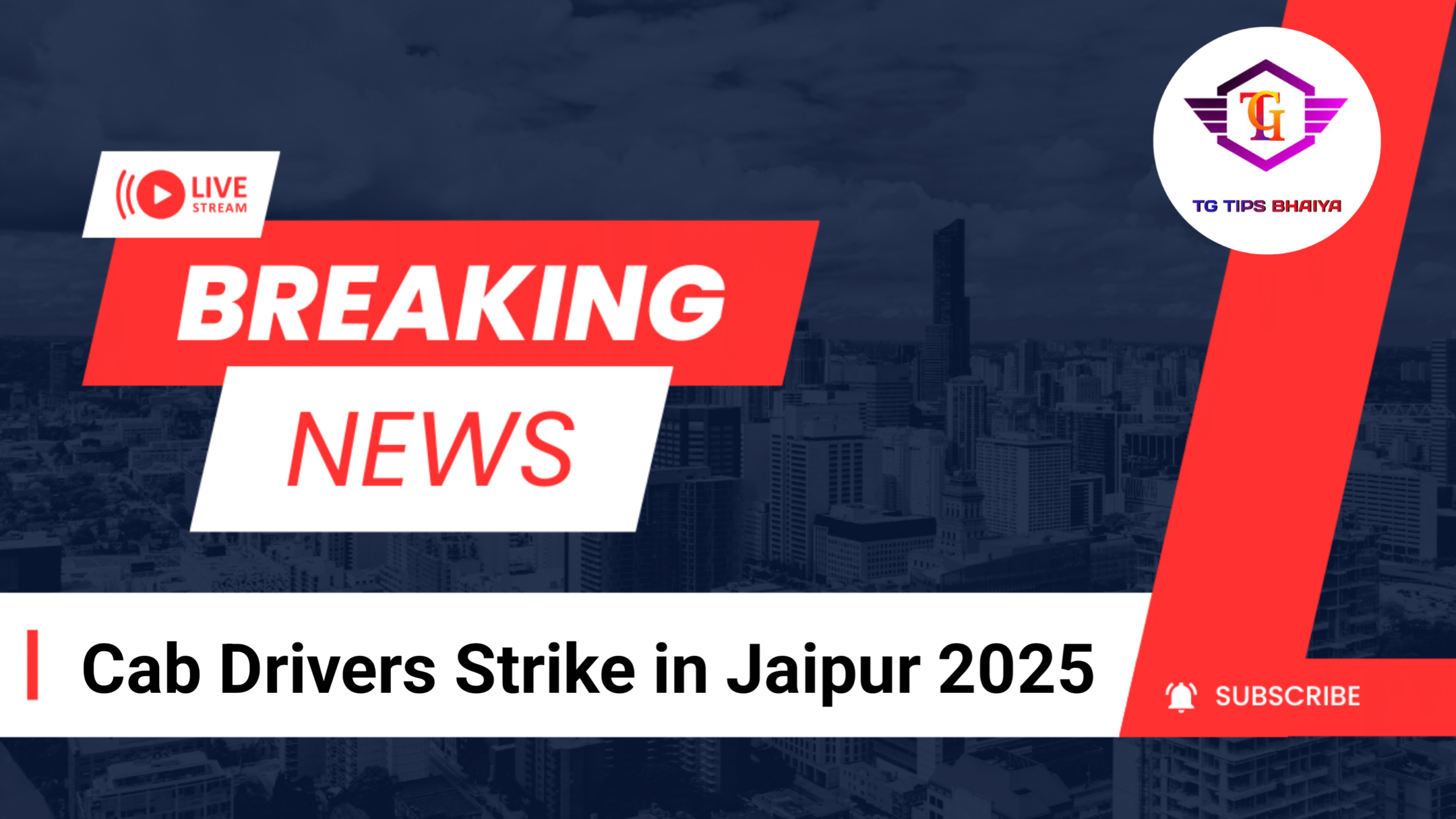New Delhi : As Artificial Intelligence (AI) continues to revolutionize industries, automation is often seen as both a solution and a threat. While many fear the potential of AI to replace human workers, Zoho Corporation’s CEO and founder, Sridhar Vembu, presents a deeper, more complex concern — one that goes beyond job loss. In a recent series of posts on X (formerly Twitter), Vembu shared his thoughts on how AI may not only transform the job market but also reshape the very foundation of the global economy — potentially leaving the middle class financially bankrupt even if they remain employed.
Beyond Job Loss: A Crisis of Income Distribution
Vembu began by challenging the popular fear that AI will wipe out human employment entirely. He acknowledged the rising capabilities of AI and robotics but clarified that we’re nowhere near full automation, especially in areas like software development. Hypothetically, if even software engineering were to be fully automated and engineers were pushed out of jobs, Vembu argues that this wouldn’t result in people doing “nothing.”
Instead, he emphasizes a deeper issue: how people will earn money in a world where most goods and services are produced by machines. “The problem is not that human beings will have nothing to do,” he wrote. “The problem is economic — how will people afford the goods being produced if they don’t have steady incomes?”
Automation: Lower Costs, but at What Price?
One of the apparent advantages of automation is cost efficiency. When robots and AI take over production and service delivery, the prices of goods and services are expected to fall dramatically. Vembu pointed out that in such a future, we might even see near-zero costs for many items, likening it to how breathing air is free and yet we don’t complain about it.
However, he quickly followed with a key concern: affordability isn’t just about low prices — it’s about income. Without employment opportunities or alternative income sources, people may still be unable to buy even the cheapest AI-generated products. This disconnect between supply and consumer capacity, according to Vembu, is where the real danger lies.
A Political and Economic Challenge, Not Just Technological
Contrary to popular narratives that focus on technology as the root of the problem, Sridhar Vembu argues that the true crisis is political and economic. The increasing automation of industries creates an urgent need for governments to rethink wealth distribution and economic frameworks.
“This is fundamentally an economic distribution problem, a problem of political economy and not purely a technological problem,” he said. Vembu strongly urged regulatory action against monopolies, especially in the tech space, to ensure that the benefits of AI are shared more broadly and not hoarded by a select few corporations.
Monopolies and Economic Imbalance
Vembu is especially critical of the unchecked power of tech monopolies. According to him, as AI becomes more dominant, large corporations could accumulate disproportionate wealth and influence, exacerbating economic inequality. This monopolistic structure could result in an elite few owning the robots and software, while the broader population struggles with limited job opportunities and declining income sources.
The solution? Stronger antitrust regulations and equitable economic policies that prevent the consolidation of power in the hands of a few and support innovation and fair competition.
Separating AI Hype from Reality
While much of the media and tech industry is flooded with bold claims about AI’s potential to eliminate millions of jobs and drastically reduce costs, Vembu urges a more measured approach. He cautioned against blindly believing the hype and emphasized the importance of analyzing real-world data.
“AI is progressing rapidly, yes — but its actual impact on the labor market so far has been limited,” Vembu noted.
Research Findings: AI’s Modest Impact, For Now
To support his point, Vembu cited a recent study by researchers Anders Humlum and Emilie Vestergaard, titled Large Language Models, Small Labor Market Effects. This research examined the influence of AI, particularly large language models and chatbots, on Denmark’s labor market.
Despite a spike in AI investment and integration, the study concluded that there was little to no significant change in job displacement or productivity at the macroeconomic level. Essentially, while businesses are exploring AI tools, their tangible impact remains minimal — at least for now.
Also Read:
What Lies Ahead: Rethinking the Social Contract
Sridhar Vembu’s perspective paints a larger picture of the future of work and economics. Rather than fearing that AI will take jobs, he encourages society to reimagine income sources, labor policies, and wealth distribution. As automation accelerates, the real question becomes:
“In a world where machines do most of the work, how do we ensure every human still has dignity, purpose, and a way to earn?”
This shift requires governments, economists, and technologists to collaborate and design new systems that uphold economic fairness, even in an AI-driven world.
Preparing for an AI Economy
Sridhar Vembu’s insights offer a powerful reminder that the future shaped by AI is not only about innovation — it’s about economic inclusivity, ethical governance, and long-term sustainability. As nations prepare for the next technological leap, the challenge isn’t just to build smarter machines — it’s to ensure that human lives improve alongside them.



2 Comments
Pingback: Stock Markets Soar in Early Trade Following RBI's Jumbo Rate Cut Mumbai and Global Rally - TG Tips Bhaiya
I am impressed with this web site, really I am a big fan .